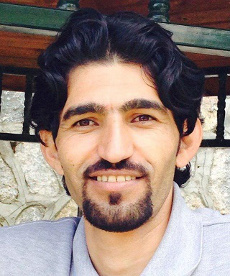T as in Tank
By guest blogger: Kaveh
Thirty-two years ago, on 20 January 1981, American hostages in Iran were released. In Iran, however, a different anniversary is celebrated every year: November 4, the day the US embassy was overtaken by revolutionary students. Burning US and Israeli flags and shouting “Death to America” and “Death to Israel” have been a common feature of these celebrations. What is often ignored in the political context of the occasion, however, is the impact that such events have on children.
For many school-age children, such celebrations provide a respite from classroom instruction. An extra half-hour added to recess for flag-burning, is almost always more fun than math class. So is the pro-government rally, which might involve being driven on a bus to another location. Bashing the US and burning an Uncle Sam effigy are merely ceremonial and devoid of real meaning for the children.
But that is precisely the problem.
When burning another country’s flag and wishing death upon that country become a rudimentary part of life, you have a problem. While the propaganda and hatred directed against the US might not shape the political views of school-age children, they can, through repeated exposure, make them indifferent to hate. Wishing death upon another human being, or another nation, is not a trivial matter. Furthermore, when children are inundated with messages of hate from an early age, wishing for the death of others becomes an ordinary thing. Now, that is no ordinary thing.
Violent themes have indeed been a ubiquitous feature of children’s education. The story of Hossein Fahmideh, who reportedly blew up an Iraqi tank by throwing himself under it, is taught in elementary school. Another example is a Fars News story from a few years ago, reporting that in an anti-smoking campaign in a school in Fars Province, a cigarette effigy was “hanged.” [1]
Take a look at this picture:
This is from a children’s alphabet book published in Iran, probably in the 1980’s: T as in Tank. Teaching the alphabet in this manner might seem funny, but it can have very serious consequences.
Now, watch this video. It’s a puppet show, from the early 1980’s. It features Iraj Tahmaseb, the famous children’s TV personality. If you don’t understand Farsi, this is the gist of it: Two school-age children want to go to the war front so that they can kill Saddam Hussein, poke his eyes out, pull every strand of his moustache and shred him to pieces. But the young man tells them that the best way for them to fight Saddam is to work hard at school. What he does not tell them, is that poking someone’s eyes out or shredding him to pieces is not something children should be thinking about.
The consequences of continuous hate-mongering and desensitization to violence are, unfortunately, evident in our society. There are frequent examples. The following picture is a telling one.
This picture was taken at a demonstration during the Green Movement. These young boys belong to the Bassij, the volunteer pro-government militia which is often used for the intimidation and suppression of demonstrators and political opponents. Baton in hand, these boys are enjoying ice-cream. Hitting people with batons has become an ordinary thing for them, so much so that they can enjoy an ice-cream during their break. Many people might see these young boys as the main obstacles to freedom in Iran. What we should not forget, however, is that these are children, and they too are victims of the violence that has permeated our political culture.
When reading about Iranian politics, pay attention to how often the phrase “elimination” comes up. Political rivals, drug traffickers, undesirable elements, apostates and numerous other groups should, depending on the circumstances, be “eliminated.” As long as this discourse persists, we are not likely to have a free society.







 My Interrogator Said: You Are An Ass, And Asses Do Not Merit Human Rights
My Interrogator Said: You Are An Ass, And Asses Do Not Merit Human Rights